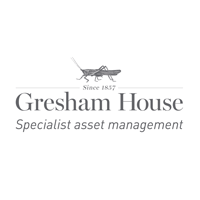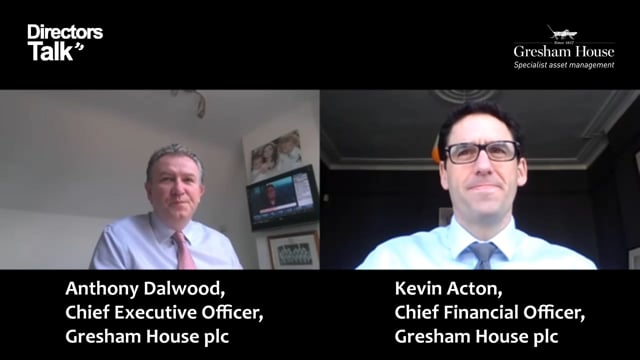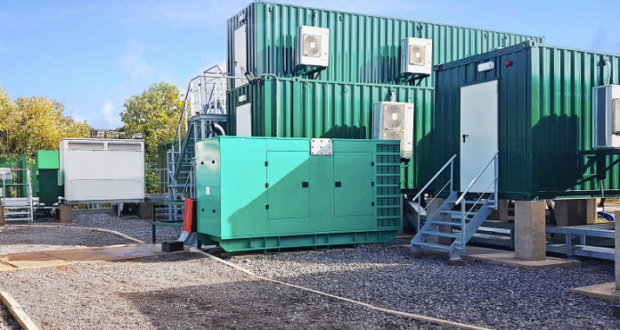Gresham House plc (LON:GHE) Chief Executive Officer Anthony Dalwood caught up with DirectorsTalk for an exclusive interview to discuss growth, alternative asset management, having a strong balance sheet and paying dividends.
Q1: The group has grown substantially in 2018, can you describe for us where this growth has come from?
A1: 2018 was a superb year for Gresham House on many levels including organic growth and acquisition growth as well the development of the people side of things with some excellent talent, investment talent particularly, within the organisation.
In numbers wise, the total growth of the business was up in assets under management terms by 250% and within that we had growth organically of 30%.
Significant things to mention include forestry where we’re now very much the number one in the UK in terms of asset management with over £1 billion of assets under management in forestry, an increase of around £300 million on the previous year.
In addition to that we have renewables where significantly we developed a position in battery storage where we launched the sizable investment trust at the last year to build on our wind and solar positions within renewables.
The acquisition of Baronsmead led us to add to our Venture Capital Trust (VCT) products as well where, with Baronsmead, we have a significant brand within the private equity world of VCT.
So, all in all, a terrific year for the company and the team in it, significant growth organically and through acquisition as well as developing our existing five platforms that we have within alternative asset management.
Q2: What does the future growth profile of the business look like?
A2: We have quite defined plans across our five divisions; forestry, renewables, housing and infrastructure, private equity and public equity.
Following a very strong investment performance year for our equity funds and Strategic Public Equity company, we’ve got a plan to grow in those areas and we’ve got 2 open-ended vehicles under the lead Fund Manager Ken Wotton, the Micro Cap and the Multi Cap. In the Strategic Public Equity area, we had the number one small cap listed investment trust, or investment company, managed by Graham Bird and myself as well, investment performance there has led us to look to scale that business in the short term as well. So, they’re quite exciting plans that are defined.
In the other areas like forestry, there are potential organic growth opportunities, but we are beginning to also capture the opportunity of our 20/30 year investment performance and track record to look internationally to pick up growth overseas.
In addition to that, our renewables area of wind, the batteries and solar, we have plans there and new platforms there and finally, the British Strategic Investment fund, we’re hoping for a final close during the year, again with increased assets under management as we deploy more into interesting areas like vertical farming and waste recycling.
Q3: The market for alternative asset management is definitely growing, how do you expect the sector to continue to develop going forward and how might this affect GHE?
A3: The asset allocation to alternative has been immense over the last 15-20 years, if you go back 15 years or so pension funds in the UK, on average, have a circa 1% of their assets within the alternative space. If we fast forward, in the last year or so, that number is well above 20, around 22% on average of alternatives in terms of asset allocation. A considerable growth and there’s no suggestion that that is going to change in terms of the trajectory, demand for yield and income remains and we are well placed to benefit from that as asset allocation towards this area grows.
Frankly, we’re very pleased that we’re in a good space with the wind at our backs and it’s now an opportunity for us to just continue to capture that potential.
Q4: The company has a strong balance sheet, what does it mean for shareholders?
A4: The strong balance sheet is comforting for all sorts of ways from a shareholder perspective.
We have around £33 million in cash and realisable assets on our balance sheet which means a very strong balance sheet from us to grow our business both organically and through acquisitions going forward and again, supporting our investment teams and product development.
So, it provides options for capital allocation decisions and it also allows us to grow the business alongside our very strong shareholder relationships as well.
Q5: Finally, why did you decide on paying a dividend this time?
A5: The importance of income to shareholders is pretty well documented, we want to continue that and maintain a relevance that Gresham House is there for shareholders and aim to create shareholder value.
It also provides a very good discipline for the management team to focus on shareholder value and the generation of long-term cash profits.










































